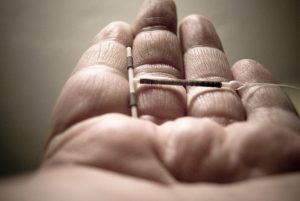What is Emergency contraception?
Emergency contraception is the use of certain contraceptive methods after unprotected sexual intercourse to prevent pregnancy from occurring.
In what situations should emergency contraception be used?
- When there has been sexual intercourse in the absence of any contraceptives (condoms, pills, intrauterine device).
- When you miscalculated your fertile period and had unprotected sex during your fertile period.
- When you or your partner forgot to use a condom.
- If the condom that was used broke or tore.
- If the semen came in contact with the vagina (due to spillage, wearing the condom late, etc).
- When withdrawal method of contraception is being used, and the male partner fails to withdraw on time.
- When the male partner ejaculates on the female partner’s vulva.
- After 2 or more combined oral contraceptive pills have been missed.
- If a progesterone only pill was not taken more than 3 hours after the time when it was supposed to be taken.
- When injectable contraceptives are taken or renewed late.
- When a cervical cap or diaphragm is broken, dislodged, removed early or torn.
- After a rape/sexual assault.
- If you feel the method of contraceptive you used has failed.
What are the types of emergency contraception?
- Emergency contraceptive pills (they include levonorgestrel – sometimes known as postinor; and ulipristal acetate – also known as ellaOne), which are also called the ‘morning after’ pills.
- Combined oral contraceptive pills (also called Yuzpe method).
- Intrauterine device.

When to take or use them?
- The levonorgestrel pills should be taken within 3 days of unprotected sexual intercourse.
- For the combined oral contraceptive pills, it is preferable that they be taken within 3 days. But they can also be taken up to 5 days after unprotected intercourse.
- The intrauterine device should be inserted within 5 days.
What are their side effects?
The pills may cause headache, nausea, vomiting, breasts that are painful to touch, dizziness, diarrhoea, etc. They are usually not severe. In any case, where there are severe reactions, go see the doctor immediately.
Do they always work?
No, they don’t always work.
- For the levonorgestrel pills, out of 100 women who take them, about 6 to 48 of them will still get pregnant.
- For the copper intrauterine device, out of 100 women who use it, only 0.1 will get pregnant. This tells you that this method is very effective.
What causes them to fail?
- The pills are more likely to fail when used by an obese woman.
- Repeated episodes of unprotected sexual intercourse.
- Not taking or using them within the specified number of days after unprotected intercourse.
Please KNOW that if pregnancy has already occurred, then emergency contraceptives should not be used as they will not terminate the pregnancy. In other words, when the fertilised egg has already implanted on the inner wall of the womb, then emergency contraceptives are of no use. Some people may decide to use them believing that they will cause an abortion, but this is not true.
Emergency contraceptives do not cause abortion.
And based on the studies carried out by researchers, it has been found that they do not cause any harm to the unborn child if they are taken by a woman who does not know that she is already pregnant.
You should not use emergency contraceptive pills all the time. This is because:
They do not work as well at preventing pregnancy as other forms of contraception if they are used all the time. Other forms of contraception are more effective when used as they should be used. The emergency contraceptive pills are made for certain situations which have been listed above (for instance, when you have failed to use your regular contraceptives as instructed, etc). The intrauterine device that is used as an emergency contraceptive can also be used as a long term method of contraception.









